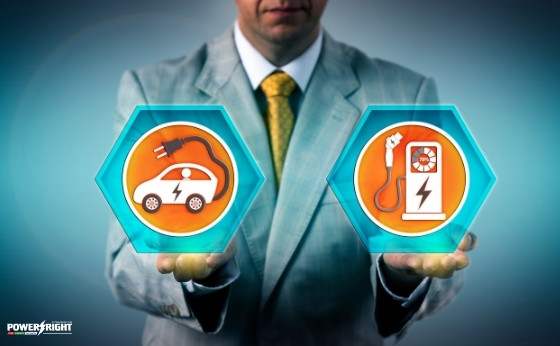
The transition to electrified transportation and electric chargers is becoming inevitable. That is why we concentrate on the reasons why this shift is a fantastic opportunity for public organisations and businesses.
Companies contribute to reducing the threat of environmental changes and climate change by shifting to electric vehicles, providing electric car charging services for employees or turning parking lots into EV-friendly spaces equipped with EV chargers.
Here are some of the possible advantages:
There are some initiatives introduced by the government to encourage a clean transport revolution. Their level varies between fully electric cars and plug-in hybrid electric cars.
SEAI offers grant supports for purchasing N1 category EVs for public and business entities. N1 category cars are small goods carrying vans with a Gross Vehicle Weight of not more than 3.5 tons.
When purchased commercially there is a maximum grant of €2,500 for PHEV and €3,800 for BEV in the N1 category. Approved electric vehicles priced less than €14,000 will not get a subsidy. You cannot claim these grants on second-hand EVs as they only apply to new EVs.
As of June 22, this grant is available not only to privately bought electric vehicles but also to company car users. It means that electric passenger cars (owned or leased for an employee) are eligible for an EV charging station grant.
Currently, you can apply for up to €600 towards the purchase and installation of an electric car charging station at home. The employee’s place of residence must be the primary place where the vehicle is parked overnight for EV charging.
VRT (Vehicle Registration Tax) and annual Motor Tax bands are calculated based on the Direct CO2 emission values. As of January 2021, Motor Tax for a BEV (Battery Electric Vehicles) is €120 per annum. As of January 2021, Motor Tax for a PHEV (Plugin Hybrid Electric Vehicles) is €170 per annum.
EVs receive VRT relief separately to grant support from SEAI. The relief up to €5,000 for BEV is in place until the end of 2021. VRT relief applies to vehicles with an Open Market Selling Price up to €50,000 only.
ACA is a tax incentive scheme that encourages investment in Triple E registered equipment. For "Electric and Alternative Fuel Vehicles" category cars, the accelerated allowance is based on the amount of €24,000 or the lower of the actual cost of the vehicle.
This Scheme suggests refunds depending on the toll collection location, toll transaction time/day, vehicle type and class. The refunds are capped at €1,000 for goods vehicles and €500 for private vehicles per calendar year.
In many countries, the transport sector accounts for about a third of overall carbon emissions. The experts claim it is accelerating climate change, so transportation is the next serious sustainability challenge.
Now is the perfect time to invest in electric vehicles and electric chargers. There are many financial support options available to aid your business: EV grant and EV charger grants, ACA scheme, motor tax and vehicle registration tax relief.